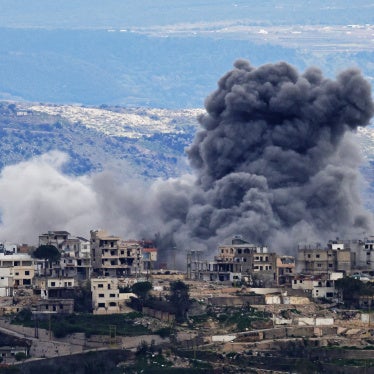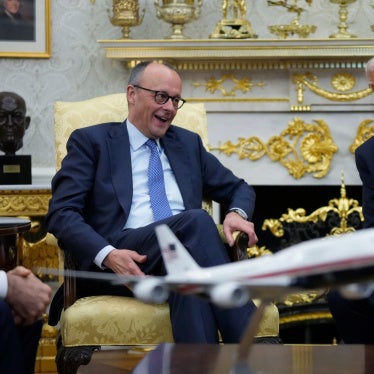BANGUI, Central African Republic — Col. Saleh Zabadi, a commander of the alliance of rebel forces that seized control of much of this country in March, is widely feared for his ruthlessness.
I recently sat down with three men who had barely survived an encounter with him. They were among seven Christian men captured by fighters from the rebel alliance, which is mostly Muslim, on Nov. 18 while returning from selling produce at a market outside of the town of Bossangoa.
Tied up and beaten, the men were brought to Colonel Zabadi and his commander, Gen. Issa Yahya (who died last week in fighting in Bangui, the capital). With barely a second thought, Colonel Zabadi accepted his men’s accusation that the tied-up traders were enemy fighters. “Go throw them in the river,” he said, ordering that the men be killed by drowning. Four of them died. The three who escaped told us their story.
The Central African Republic, a landlocked country of 4.5 million, most of whom are Christian, has been torn by fighting between the rebel alliance known as Seleka (or ex-Seleka, as they have been nominally integrated into the army) and the mainly Christian anti-balaka (“anti-machete”) fighters, who have carried out revenge attacks against the Muslim rebels who control the capital.
A few days ago, the photographer Marcus Bleasdale and I accepted an invitation to meet Colonel Zabadi in Bossangoa, about 300 kilometers north of Bangui.
The night before, Gen. Mahamat Bahar, another rebel commander, had arrived in Bossangoa. He’d been sent by President Michel Djotodia to assess the dire situation in the area, where hundreds of people have been killed and thousands of others have been uprooted. He was clearly shaken by the journey, having been attacked four times on the road by Christian fighters. (He was not wounded.) General Bahar showed us, on his cellphone, a video clip of a Muslim village chief being burned alive during a Christian militia attack in September.
We, too, had been documenting attacks by the anti-balaka fighters and had spent the last few days investigating the killings of Muslim civilians a short distance away. One of them was a young, wounded cattle herder murdered hours after we talked to him at a hospital where he was being treated.
Colonel Zabadi and his men listened attentively for a half hour as an interpreter relayed, in Arabic, our description of the violence against Muslims. But then it came time to discuss the numerous atrocities committed by his men.
We relayed this account from one Christian eyewitness: “Every day, they murder farmers going to their fields. They hunt them like animals, hiding in the bush to ambush them. Just yesterday, they shot dead a mother by the river, and they left her body with her baby crying next to her.”
I also told Colonel Zabadi that we knew about the drowning of the Christian traders: “I know it was you who gave those orders, because some of the men survived.”
The whole group seemed to tense up. General Bahar took out a towel to wipe the sweat pouring off his face.
I opened my backpack and unfolded a dozen large printouts, generated by satellite imagery, of villages Colonel Zabadi and his men had burned to the ground. I told them: “All those red dots are the houses you’ve burned. More than 400 in Ben Zambé. More than 300 in Zéré. Not one home left in this village. The same in this one.” I told him that this was direct evidence that could be used against him at the International Criminal Court, which prosecutes war crimes and crimes against humanity.
There was silence all around us.
We observed that the situation had changed since French peacekeeping forces, operating under the auspices of the United Nations, had arrived. Over the past few days, French warplanes had repeatedly flown over Bossangoa to put the armed groups on notice. Those planes were delivering a message to the rebels, I said: Rule by the gun and you will end up in The Hague, or treat the population properly and rule through respect.
Cornered, Colonel Zabadi didn’t deny our accusations. He said he wanted to mount joint patrols with the regional peacekeepers to encourage local Christians to come home. We pointed out that, if this were going to happen, he had to order his men to stop killing those who were displaced.
Our meeting ended cordially, to my surprise and relief. General Bahar promised to take our message back to the president in Bangui.
The next day, we returned unannounced to the Seleka base, to inform the commanders that African peacekeepers had begun to disarm the Christian militias fighting them. We found General Bahar and Colonel Zabadi in a heated discussion with other Seleka commanders and regularly heard the words “human rights” evoked (in Arabic). General Bahar ordered the fighters to stay in their barracks, hand over their weapons, and ask permission before going anywhere. He ended by saying, “This is our last chance.” Whether they obeyed him, time will tell.






